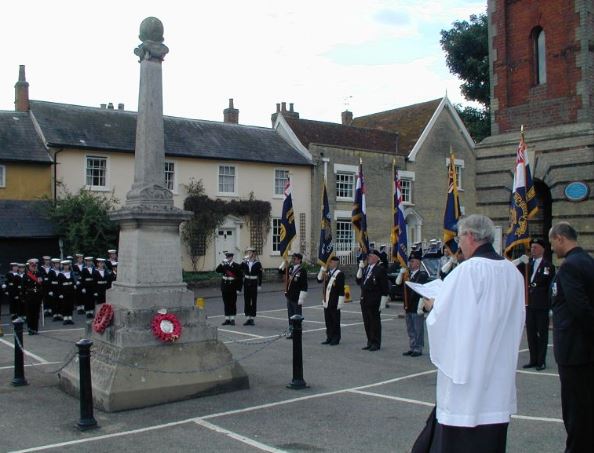World War One has been jogged back into the UK’s collective consciousness once more with the Third Battle of Ypres,aka Passchendaele getting its own Royal Command Performance on British TV.
Two thoughts; one pretty much universal and the other pretty much local.
The local first. There is a tiny village in Suffolk named Bildeston. A few weekends ago I went there for an antiques fair held in its little square, surrounded on three sides by Georgian houses. In the square is an obelisk war memorial upon which are inscribed the names of the dead of two wars. Two dead men from from the Great War with the same name caught the eye. Their last names were so evocative of the England of yore that I have to share.
They were the Squirells, Alfred Squirell and the second, so as not to be mistaken for Alfred, Fred Squirrell.
Bildeston is not alone. Across Britain and in similar hamlets in France or Germany within their lists of the dead many hold those with the same surname. Brothers, cousins, father and son; who now knows? But you can be sure that everyone was recalling them in Bildeston that mournful Saturday afternoon in late March 1920 when the village assembled around the square to see the monument unveiled.
Carved on the Portland stone spire 17 and a half feet high are 15 names in all of locals from the village among what is often referred to as the “fallen”. The word itself is a euphemism, by suggesting as it does that they had tripped up and lost their footing on life, rather than the uglier reality of having it ripped from them as a two foot square red hot piece of cast iron shell shrapnel travelling at the speed of a bullet detaching a limb or ripping open a belly in a way that makes Game of Thrones look tame. But let that pass.
The village had itself subscribed for the memorial. Remember that the war had finished just 18 months before and so emotions and memories had not been dulled by time. Around its base that Saturday and for many years to come were laid wreaths of flowers from close relatives.
Local worthies and churchmen made speeches, the scouts and guides marched and tea was taken.
I know nothing further of the Squirells’ lives, save that one of them was just coming up to his 19th birthday when he died, three months before the war ended.
It is worth thinking of folk like the Squirrells all the time, not just when prompted by the BBC when there is an anniversary with a zero at the end. Imagine that day when old Mrs Squirell was told of her son’s death, or visualise the father and brothers Squirell’s stoic faces in their family pew that following Sunday, while the village either awkwardly avoided the family completely or commiserated in that understated English Edwardian manner about the lad doing his duty for ‘King and country’ etc.
The second thought is something of a throwaway musing about what the people wish for and what the people get in life. It’s as true today as it was in 1914 to 1918. It is a truism that at the outset the British populace “voted” for the war against Germany. It had been coming for years.
Yes, I realise there was no referendum where the men (voting was not “a woman’s place” in 1914) cast a vote, but just glance at the enthusiastic papers of the time; remember the patriotic songs and posters; see those silent films of men “flocking to the colours” at recruiting halls across the country. Were they voting for The Somme, Passchendaele, and the rest of the nightmare? You know they weren’t. So when the public is asked for an opinion it is likely that they ‘vote’ for a vague strategic intent not the means to that end… It was Beat the Hun! not a vote for those on the Home Front to have to witness through their lace curtains a telegraph boy open the gate and walk up their neighbour’s path to deliver that terrible telegram “We regret to inform you…” to a million Mrs Squirrells.
This is a fact that poignantly echoes on a more tragic plane down to today’s maundering gibberish uttered by those in Britain who want to remain in the undeniably faltering EU.
The remoaners are often heard to say “The British people did not vote to…” and then they add the words “…leave the Single Market” or “…leave the Customs Union” or “…fall off a cliff edge”.
Sadly for the dissenters and the Squirells, yes, in effect they did.
